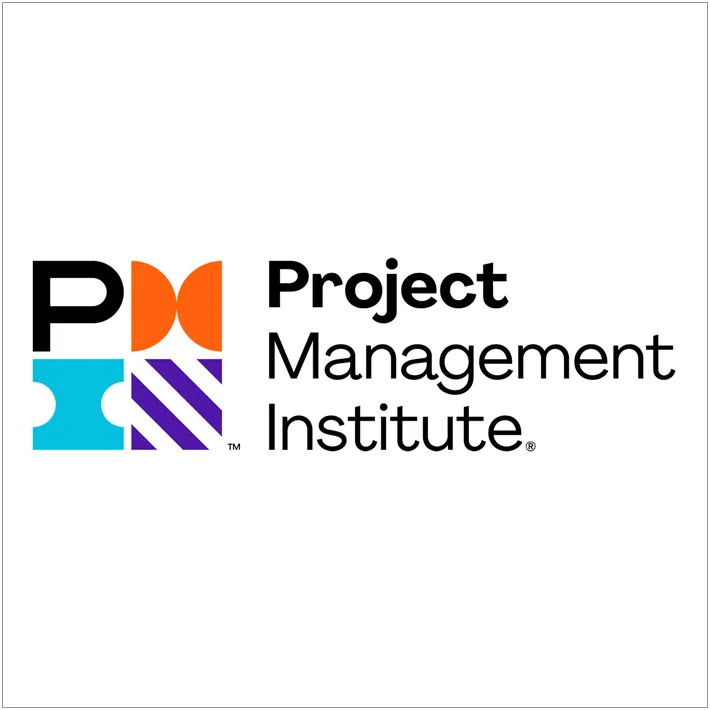

Advanced Project Management - Environmental
CIP Code: 3.0201
Overview
Be a part of change by coordinating efforts to mitigate environmental impacts, ensuring regulatory compliance, and striving for sustainable solutions.
The Lambton College Advanced Project Management – Environmental, Ontario College Graduate Certificate prepares graduates for careers in project coordination and management in a variety of industries including environmental science, environmental engineering, urban planning and human geography, sustainability, and building science.
The program aligns itself with the PMI® A Guide to the Project Management Body of Knowledge (PMBOK® Guide) - Seventh Edition, Project Management Institute, Inc., 2021 and heavily utilizes foundational standards and practice frameworks prescribed by the Project Management Institute (PMI).
Students are introduced to the initiation, planning, execution, monitoring, controlling, and closing to a wide range of projects that focus on the environment and sustainability. In addition, students expand their business leadership skills through collaborative team projects, and further develop negotiation and communication skills. The use of project management software tools within an environmental context will enable students to meet the challenging demands of these complex fields.
Lambton College is an Authorized Training Partner (ATP) of the Advanced Project Management & Strategic Leadership program. Please Note: Due to updates made by PMI® there will be program and curriculum changes at times.
Sarnia - A Great Place to Study
Immerse yourself in Canadian culture in Sarnia's small community that cares.
Enjoy the beautiful city on the shores of Lake Huron, live affordably, and let us help you succeed in your future aspirations.
Admission Requirements
- University degree or equivalent in environmental science, planning, earth sciences, life sciences, or engineering
The admissions process is competitive and meeting the minimum academic requirements does not guarantee admission.
Lambton College reserves the right to alter information including admission requirements and to cancel a program or course at any time; to change the program curriculum as necessary to meet current competencies or changes in the job market; to change the pathways to third-party certification bodies; or to withdraw an offer of admission both prior to and after its acceptance by an applicant or student because of insufficient applications or registrations or over-acceptance of offers of admission. In the event Lambton College exercises such a right, Lambton College's sole liability will be the return of monies paid by the applicant or student to Lambton College.English Language Requirements
Applicants must submit proof of English proficiency through one of the following in-person test methods:
- IELTS Academic: Overall score of 6.0
- TOEFL IBT: Overall score of 70
- PTE Academic: Overall score of 53
- CAEL: Overall score of 60
- CELPIP: CLB 7
- Lambton Institute of English Placement Test: Overall score of 70
- Completion of an English pathway program at a recognized partner school
Meeting the minimum English requirements does not guarantee admission. Students with higher English proficiency scores will receive priority in the admission assessment process. Not all students will qualify for EAP-3106 in place of the required IELTS or TOEFL test scores.
Authorized Training Partner

Issued by the Project Management Institute (PMI)
Lambton College of Applied Arts and Technology is an Authorized Training Partner of the Project Management Institute®. As an Authorized Training Partner, Lambton College, Lambton College Ottawa, Lambton College In Mississauga and Lambton College in Toronto are authorized to support the educational development needs of those in pursuit of PMI Credentials. This program qualifies for professional development units (PDUs).
The PMI Authorized Training Partner logo is a registered mark of the Project Management Institute, Inc.
Costs
- Term 1 $9,493.17
- Term 2 $8,707.07
- Term 3 $9,407.07
- Term 4 $0.00
Total Cost of Program
Tuition fees are estimates and are subject to change each academic year. Fees do not include books (unless specifically noted), supplies or living costs.
Lambton College reserves the right to alter information including admission requirements and to cancel at any time a program or course; to change the location and/or term in which a program or course is offered; to change the program curriculum as necessary to meet current competencies or changes in the job market; to change the pathways third-party certification bodies; or to withdraw an offer of admission both prior to and after its acceptance by an applicant or student because of insufficient applications or registrations or over-acceptance of offers of admission. In the event Lambton College exercises such a right, Lambton College’s sole liability will be the return of monies paid by the applicant or student to Lambton College.
Additional Fees
WIL Project Fees
Students who are not successful in securing a co-op or fail to meet the co-op requirements will need to register in CPL-5559 WIL Project.
There is an additional fee of $2,100 for each student enrolled in the WIL Project course.
Important Dates, Deadline & Late Fees
For additional information on registration dates, deadlines and late fees please refer to Registration Dates and Deadlines.
Student Fees
A student services fee is included in your tuition.
Health Insurance Coverage
Emergency medical insurance is mandatory for all international students at Lambton College. This includes students who are full-time and part-time and who are on a co-op. This insurance is provided by GuardMe - a third party insurance provider.
See Insurance Costs & DetailsTechnology Requirements
In order to keep pace with the requirements of each and every course in your program, Lambton College requires that each student have access to a laptop while studying at our college.
Courses
Project Management Overview & Context
In this course, the student is introduced to project management fundamentals and core concepts providing an understanding of the various project life cycles and processes. This course explores the Project Management Institute website and what it has to offer in terms of certifications, practice guides and the reference site. The student will learn about different certifications available demonstrating effort and commitment to the profession. The newest version of the PMBOK Guide and the Standard for Project Management will be the focus laying a sound foundation for all future program courses. Upon completion the students will be aware of several common project management terms, the project management framework, and the profession itself. The student will have experienced team building and teamwork by applying case study assignments to demonstrate their learnings.
Initiating a Project
In this course, students develop a structured approach to project initiation and a understanding of the performance domains of stakeholders, planning and communication. Key to this approach is the linkage of the business need to the project outcomes and application of project selection in an organization. Students will examine the Project Charter, linking the business case to the project objectives and outcomes. Examining various models, methods, and artifacts to use when initiating a project for traditional, agile and hybrid. Students will learn the stakeholder Project Management Principles including analysis of project stakeholders, tailoring to stakeholders and project methodology and determining which artifacts are relevant for stakeholder analysis to create a stakeholder engagement plan to deliver identified outcomes. Students will learn appropriate communication methods based on project methodology and how to properly assess communication in delivering planned outcomes. Communication models and methodology will be examined to create a communication plan to engage identified stakeholders. Materials in this class are based on the A Guide to the Project Management Body of Knowledge, (PMBOK® Guide) - Seventh Edition, Project Management Institute Inc., 2021.
Identifying Project Requirements: Scope & Quality Management
In this course students identify and define project scope and quality requirements using an array of tools and techniques, including Planning Scope Management, Collecting Requirements, Defining Scope, Creating the Work Breakdown Structure (WBS) and Planning Quality Management. Materials in this class are based on the A Guide to the Project Management Body of Knowledge, (PMBOK® Guide) - Seventh Edition, Project Management Institute Inc., 2021.
Sustainable Development in Canada
This course introduces the concept of sustainable development in Canada to a broad audience. Students are presented with the factors that affect the environmental, economic and social sustainability of our communities. The course investigates the development of human populations and how their need for resources (e.g. energy, food, water) has compromised the natural ecosystems. Social and economic factors are explored in the context of social equality and sustainability in the local and global economy.
Introduction to Geographic Information Systems
Introduction to GIS introduces students to Geographic Information Systems, focusing on the principles of managing, analyzing, and visualizing spatial data. Using QGIS and ArcGIS Online, students will learn to manipulate geographic databases, generate reports, and create maps, gaining hands-on experience to solve real-world problems.
Job Search & Success
This course provides student with skills and knowledge to help support their career search and succeed in the workplace. Students align their personal skill set and goals to guide them on their career paths. They will learn how to effectively conduct a job search, build a professional and well-tailored resume and cover letter, and develop and practice interview techniques. Students will also develop their personal brand to help support effective career networking and aid in their job search. Teamwork and collaboration in the workplace are also discussed. Self-reflection is used to inspire insight and support their professional career journey.
GenAI Overview for PMs Certificate
Unlock the potential of Generative AI (GenAI) in project management with our comprehensive overview course. Dive into the fundamentals of GenAI and discover a variety of powerful tools and applications designed to enhance project outcomes. Equip yourself with the knowledge to leverage AI-driven innovations for more efficient and effective project management strategies.
Project Planning: Resource Management
The course provides an introduction into the complex topic of resource planning for a project. Students will learn how to: define all the project activities required; estimate the resources required; create a time-phased budget; develop a schedule; and acquire, develop & manage a project team with the three types of project development approaches. Students will learn how all these processes interact with one another over the course of the project life cycle.
Executing a Project
In this course, students gain an understanding of the processes, methods and techniques used to execute a project to ensure the project meets the original project goals and deliverables successfully. Projects may exist in predictable environments characterized by precise requirements and end-to-end plans or in environments of high uncertainty and complexity with processes that discover the solution as the project progresses.The studies include leading and managing stakeholders, teams, project work, delivery, measurement, uncertainty, scope, schedules, cost, quality, communications, procurements, conflicts, negotiations and ethical and legal issues in a project environment. Materials in this class are based on the A Guide to the Project Management Body of Knowledge,(PMBOK® Guide) - Seventh Edition, Project Management Institute Inc., 2021.
Ontario Environmental Legislation
This course provides students with the skills and practical knowledge that apply to various regulatory standards related to air, water, soil, hazardous waste, chemical management and other related environmental legislation. Topics will be analyzed in terms of standard development, enforcement at municipal, provincial and federal levels, and the validity of the standard's ability to protect health and the environment particularly specific environmental statues that are significant to Ontario practice today.
Project Leadership: Managing the Project Team
By the end of this course, students will have the knowledge and skills necessary to create, develop, and lead high-performing teams for predictive and agile project methodologies. They will be able to implement strategies, best practices, and effective leadership techniques to foster collaboration, motivation, and excellence within project teams, ultimately contributing to the successful achievement of project goals and objectives.
MS Project & Data Analytics
In this course, the student is introduced to understanding, organizing, and presenting data in useful visual formats to able to interpret, analyze and make decisions on a project. The student is presented with a number of techniques and tools within MS Excel and MS Project to aid with data analysis. Upon completion, the student will be able to use a number of advanced features within Excel as well as create a complete MS Project Schedule. The student will have the knowledge to monitor the progress of the project using Earned Value Management and utilize several reporting tools within MS Project.
Managing Project Uncertainty: Risk and Procurement Management
In this course, the student explores the management of project uncertainty. First is the assessment of the level of uncertainty in a project. Next is an understanding of projects with processes that do not change significantly from one project to another (defined process control) and those with high uncertainty that have processes that adapt both the solution and the process as the project progresses (empirical process control). The student explores when and how to blend the two approaches to fit the situation when required. Two related planning areas are examined: risk and procurement management. Risk management planning includes identifying and analyzing risks and developing risk response plans. Procurement management planning involves acquiring goods and services from external organizations. In each case, the level of uncertainty and the factors that drive uncertainty in the project environment must be assessed to determine the appropriate approach. Materials in this class are based on the A Guide to the Project Management Body of Knowledge, (PMBOK® Guide) - Seventh Edition, Project Management Institute Inc., 2021.
Monitoring & Controlling Project Requirements
In this course, the student explores project management approaches to accomplishing project objectives and meeting quality requirements by tracking and measuring project performance and taking appropriate actions to maintain acceptable performance. Work in the project measurement domain is often concerned with tracking and managing project work, delivery, uncertainty scope, schedules, costs, quality, and stakeholders.
Project Health and Change Management
In this course the student learns what change management is and the source of change as a result of strategic agility in the business environment for both traditional and agile projects. Assessing an organization's readiness for change will be outlined. Change as a strategy is emphasized, highlighting common models of change, the change life cycle framework, and planning and executing change in an Organizational Project Management (OPM) environment. There will be discussion on what project health is and how a project is assessed. The student will be introduced to continuous improvement techniques and process mapping tools.
Canadian Environmental Practices & Ethics
In this course, the student will learn about the different professional boards which regulate professional members in Ontario within the Environmental Industry, including Engineers (PEO), Planning (OPPI), Engineering Technologists (OACETT), among others. In addition, students will gain insight into the code of ethics as enunciated by the project management institute (PMI) and other Project Management bodies. Students will explore the basis behind business ethics, and the standards of business conduct in a Canadian context. This course reviews various ethical issues that professionals may face in the Environmental sector. It looks at the specific challenges project teams may confront as they deal with team members, vendors, stakeholders, and sponsors.
Sustainable Infrastructure: A Canadian Context
This course introduces various aspects and approaches of sustainable infrastructure management from a Canadian perspective. It will outline the available and emerging technologies and systems, legislative frameworks, policy developments and funding and financing mechanisms involved in the decision-making process. The material will have a specific focus on sustainability related to infrastructure and buildings in municipalities, rural areas, and remote communities. Elements presented will include transportation networks, energy efficiency and renewable energy technologies in commercial, institutional, industrial, residential, and other sectors. How sustainable infrastructure impacts the economic, environmental, and social aspects within society will also be studied.
Project Management Simulation - Environmental
This course provides the student an opportunity to demonstrate their skills by acting in the role of the environmental project manager. This simulated workshop consolidates the learning from the previous courses and provides an opportunity to put learning into action through the use of a computer-based project management simulation. Upon completion, students prepare a lessons learned audit capturing their reflection of their own performance and that of their teammates.
Project Closures Intro - Agile
In this course, the student examines the processes and activities involved in closing the project and handing over the project after completion. This includes; pre-commissioning, commissioning, hand-over to client, financial, contract, and administrative closure. The course also explores other project management methodologies beyond the traditional 'waterfall' planning approach. The course also introduces the Agile concepts from the Agile PMBOK, using the Scrum and Kanban framework as examples. Also, the course introduces students to PRINCE2 framework. PRINCE2 guides you through the stages of a project's lifecycle, bringing structure and a common language to your projects. It represents the "how to" of project management: it is flexible, scalable, and can be tailored to meet your specific requirements. PRINCE2 is based upon the tried and tested experience of project management practitioners around the world, and provides the themes, principles, and processes to deliver successful projects of any size and complexity. Upon completion of the adaptive project management area of this course, students will be able to understand the fundamentals of Agile, Scrum, and Kanban, discover how to leverage early and continuous feedback to deliver products that delight customers, and will be able to define key roles and responsibilities of Agile team members. Finally, students will learn how to improve team productivity and quality by removing impediments and highlighting organizational inefficiencies, understand how to improve lead time and throughput by managing the amount of work in progress, and earn how to guide continuous improvement of the team and the organization.
Co-op Work Term (Full-Time)
Co-operative education provides students with the opportunity to apply classroom learning to the workplace, undertake career sampling and gain valuable work experience that may assist students in leveraging employment after graduation.
WIL Project
Work Integrated Learning (WIL) Project is aimed at enriching students by connecting different program areas of study, cutting across subject-matter lines, and emphasizing unifying concepts. The focus of the WIL Project is to make connections between study and industry by engaging students in relevant and meaningful activities that are connected to and practiced within the professional workplace. WIL Project allows students to enhance and strengthen their employability prospects post-graduation by fine tuning skills and knowledge and meeting the expectations of today's employers. Students are required to attend the scheduled shifts in the WIL office, reporting to the WIL Supervisor. Weekly real-world challenges are presented in the WIL office, designed by industry professionals. In addition to the weekly assigned deliverables, students are also offered professional development sessions, and exposed to industry guest speakers, enhancing their opportunity to develop their professional network.
Co-op Eligibility & WIL Project Fee
In order to be eligible to secure an approved full-time co-op work term (CPL-1049), students must have a GPA of 2.8 or greater and complete all the co-op eligibility requirements. Failing to do so will require students to enroll in CPL-5559 WIL Project at an additional cost.
Contact
Centre for Global Engagement
LAMBTON COLLEGE SARNIA
1457 London Road
Sarnia ON N7S 6K4
After Graduation
Employment Opportunities

As one of the largest trades and a vital component in most organizations, millwrights have a wide range of potential employment opportunities. Graduates of this program have found careers in industries such as, but not limited to, refineries, nuclear power, manufacturing, and energy, automotive and food processing sectors.
Looking for Support After Graduation?
The International Graduate Services & Support Centre (GSSC) is a place dedicated to assisting International alumni as they seek employment and settle into Canadian life following graduation.
Post-Graduate Employment
International students who successfully complete their programs of study at Lambton College may be eligible to apply for a Post-Graduation Work Permit (PGWP) Program. This program allows students to gain valuable Canadian work experience.
A work permit under the PGWP may be issued for the length of the study program, up to a maximum of three years. A post-graduation work permit cannot be valid for longer than the student's study program, and the study program must be a minimum of eight months in length. The length and approval of the PGWP is determined solely by Immigration, Refugees and Citizenship Canada (IRCC).
Students must meet the eligibility requirements to apply for a post-graduation work permit.
Immigration Regulations & Changes
Immigration regulations are legislated by the Federal Government of Canada and are subject to change at any time without notice. Students are responsible for ensuring that they are in compliance with all Immigration, Refugees and Citizenship Canada regulations at all times during their studies and while in Canada. Lambton College staff are not authorized to provide advice or guidance on immigration-related matters. Prospective applicants and current students should consult the Immigration, Refugees and Citizenship Canada website or call the IRCC Call Centre at 1-888-242-2100 to answer or clarify any immigration-related questions or information.
Co-op
About Co-op
Students in this program have the opportunity to gain valuable work experience by applying classroom learning during co-op experiences.
Learn more about co-op terms and the roles and responsibilities of students and co-op advisors.
More Information
Student Responsibilities
- Course and program delivery schedules are proposed and subject to change for each intake.
- Students are required to bring their own laptop with wireless capability.
- Students are advised to bring an official copy of their most recent police clearance, driver's license, and vaccination record from their home country.

Technology Requirements
It is recommended that students purchase a laptop with a Windows operating system.
Internet Speed Requirements
For best performance for students learning remotely, an internet connection with a minimum of 40 Mbps download and 10 Mbps upload speed is recommended in order to effectively use video conferencing and remote lecture delivery software as well as, other online resources remotely. Due to the large area over which students may be dispersed, we are unable to recommend a specific provider, so you will need to inquire around your area to find one that best suits your needs.
Minimum Laptop Requirements
In order to access the internet and virtually-delivered software and courseware, student laptops should include the following at a minimum. By meeting the following specifications, students will be equipped to access software and courseware on their laptop through the internet:
- Intel i5 8th Gen Processor or equivalent
- 16 GB of RAM (with a minimum of 8 GB)
- 100 GB HDD or more
- HD Graphics
- Webcam with a microphone
- Wireless 802.11n/ac 5ghz capable
- Windows Operating System (Windows 11)
Please note that Chromebooks and MacBooks may not support all software required for your program; students should verify compatibility with their professors.
Software
To ensure students are getting the most our of their classroom experience, some software will be required.
Lambton College has made this software easily accessible online. Students can leverage our Microsoft Office 365 software packages and services. In addition, much of the software you require for your courses will be available on demand for use on any device - on or off campus.